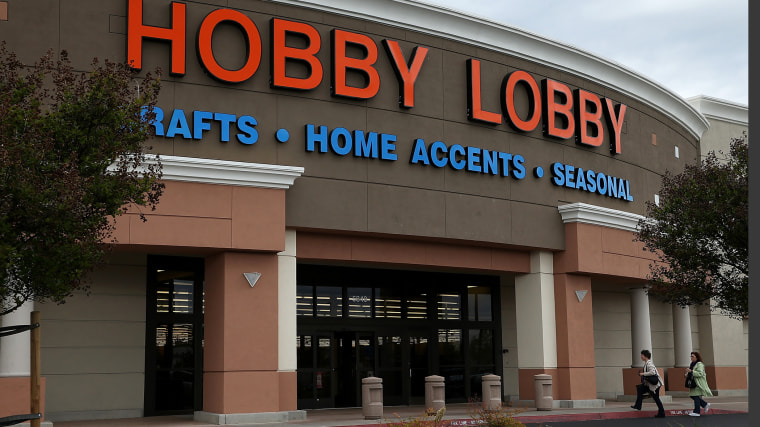An Oklahoma school district has approved the use of a Bible curriculum designed by Steve Green, the controversial owner of Hobby Lobby. The Mustang public schools will begin offering the curriculum next academic year. As reported by Religion News Service, Green's curriculum is designed to correspond with his planned Museum of the Bible, which is currently under construction in Washington, D.C. Jerry Pattengale, who heads the Green Scholars Initiative and is overseeing the curriculum's development, said the ultimate goal is put the curriculum in "thousands" of schools. Little is known publicly about the details of the curriculum. However, in a 2013 speech he delivered to the National Bible Association, Green explained that it's divided into three sections: the history of the Bible, the story of the Bible, and the impact of the Bible.
This Week in God, 4.19.14
You've heard about Hobby Lobby's owner launching a fight over contraception. But what about Hobby Lobby's fight over Bible history and public schools?

First up from the God Machine this week is an interesting faith-based dispute involving Hobby Lobby's corporate owner -- but it's probably not the dispute you've already heard about.
Hobby Lobby, an arts-and-crafts chain owned by Christian conservative Steve Green, is perhaps best known in political and legal circles for its pending Supreme Court case in which Green's attorneys believe corporations are people with their own religious beliefs. It's this corporate spirituality, the argument goes, that entitles Hobby Lobby to deny contraception coverage to its employees.
But as Sarah Jones reported this week, this isn't Green's only interest in church-state policy.
It's worth emphasizing that public schools are legally permitted to offer classes related to religious history and religious texts, so long as the curricula is secular and objective. A scholarly, historical analysis of scripture is consistent with the First Amendment's separation of church and state; public-school evangelism is not.
What does Hobby Lobby's Green have in mind for public high-school students? The Green Scholars Initiative insists lesson plans will honor the law and remain religiously neutral, but in Green's 2013 speech, he specifically told his audience, "The history is to show the reliability of this book.... When you present the evidence, the evidence is overwhelming."
Now that Green's Bible curriculum has been embraced by an Oklahoma school district, don't be too surprised if Hobby Lobby's owner ends up in another major church-state court fight.
Also from the God Machine this week:
* State lawmakers in Louisiana are moving forward with their plans to make the Christian Bible the official book of the state. Litigation appears likely.
* A New Jersey woman tried to get a personalized license plate that reads "8THEIST," but the state DMV apparently rejected it. She's taking the matter to federal court.
* As if the "war on Christmas" didn't seem quite foolish enough, Fox News has also been talking up an alleged "war on Easter."
* A fascinating story out of North Carolina: "A new religious statue in the town of Davidson, N.C., is unlike anything you might see in church. The statue depicts Jesus as a vagrant sleeping on a park bench. St. Alban's Episcopal Church installed the homeless Jesus statue on its property in the middle of an upscale neighborhood filled with well-kept townhomes. Jesus is huddled under a blanket with his face and hands obscured; only the crucifixion wounds on his uncovered feet give him away. The reaction was immediate. Some loved it; some didn't."
* And at the close of the White House's Easter Prayer Breakfast this week, President Barack Obama "unexpectedly turned the floor over to Gene Robinson, the first openly gay Episcopal bishop.... Robinson retired as bishop of the Diocese of New Hampshire in early 2013. He is now a senior fellow at the liberal think tank the Center for American Progress."